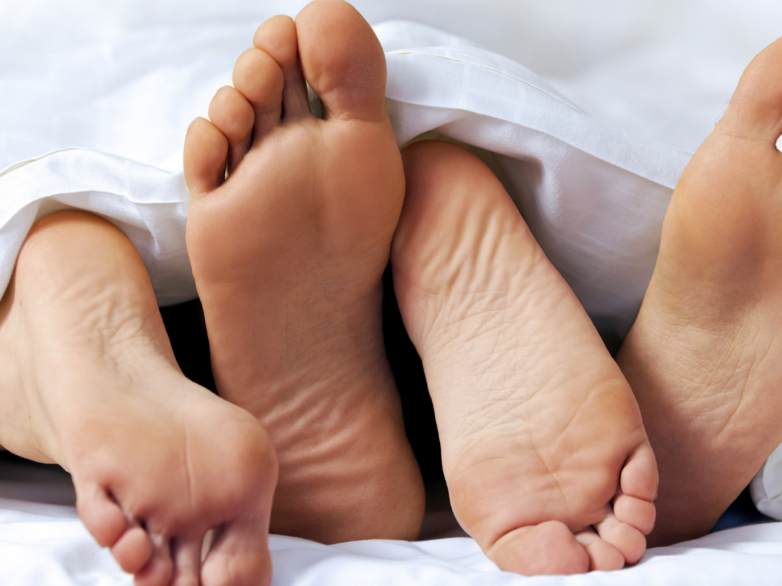
How Testosterone Affects Your Body
Are you experiencing low libido, low drive and ambition? Testosterone could be the answer!
Testosterone is not just the male hormone for bulky biceps, it is a fundamental hormone for sex drive and energy in both men and women! We all need it at an optimal level in order to live the healthiest and best life possible!
Does this mean that you should start taking a synthetic form of testosterone? Of course not. This will shut down the production of your own natural testosterone and so the older you are, the less likely you are to get it back. These bio-identical hormones have real repercussions and so you should always look to boost them up naturally.
That is why hormone replacement therapy is not a good idea. If you have symptoms caused by hormones such as low sex drive, hot flushes, weight gain, low mood, night sweats and sleep disturbance, you need to look into WHY. It’s not about just starting to pump your body with these man-made synthetic hormones.
WHAT ARE THE SIGNS OF LOW TESTOSTERONE?
- Lower mood
- Lower confidence/ambition
- Lower drive
- Difficulty building muscle
- Low sex drive
- Hot flashes
- Osteoporosis
However, these symptoms could be due to multiple factors such as low thyroid, blood sugar dysregulation and low adrenal and not just testosterone. This is why working with an integrative health practitioner comes into play in order to you help go through a process of elimination, whether it is through symptoms or functional lab testing.
Increasing testosterone levels too much is also not what you want as this can lead to a host of issues in the body.
It’s about balance and that’s where true health lies.
WHAT IS CAUSING YOUR LOW T?
1. Chronic Stress
When you’re under stress, you switch on the sympathetic nervous system, the so-called “fight or flight” response. In the initial stage of chronic stress, testosterone might actually be high and this usually when someone is at the “alarmed stage” of adrenal fatigue (check my post on the 3 stages of adrenal fatigue here).
However, if you don’t fix the chronic stress, the body will favour the production of cortisol over that of other hormones (including testosterone), causing testosterone to drop.
2. Blood sugar dysregulation
Highs and lows in blood sugar will cause testosterone levels to drop overtime.
3. Low fat diet
This will decrease levels of total cholesterol levels which can then cause testosterone levels to drop.
4. Lack of sleep
Your testosterone levels increase as you sleep and decrease the longer you’re awake. The highest levels of testosterone production occur during REM sleep, the period late in the sleep cycle that helps replenish the body and mind.
5. Chemicals in plastic
Most plastics contain BPA, which will increase estrogen and decrease testosterone.
HOW TO BOOST TESTOSTERONE NATURALLY:
1. Sleep
Without proper rest, the body goes into “reserve” mode: maximising the blood sugar glucose readily available as efficiently as possible and turning off the body’s reaction to insulin. This causes cortisol to rise and so inhibits testosterone production.
2. Exercise
A good workout will boost testosterone because it promotes more muscle. The more muscle you have, the higher your testosterone levels.
Remember, walking, jogging and cycling are great but they are more cardiovascular-focused and are not going to work the muscles the same way.
3. Animal protein
Am I a big proponent of going overboard with animal protein? Definitely not, my diet is 90% plant-based.
However, if I have a client that has low testosterone, I generally recommend increasing this a little bit in the short-term (if they are open to it of course). The key to this is to choose these foods wisely and not just buy them from any supermarket.
4. Carbohydrates
When our blood sugar gets too low, it triggers the stress response. Hunger is a potentially life-threatening situation after all.
This is why low carb diets are not a good idea long-term as it will trigger the stress response. Cortisol levels will rise because the body will not have enough glucose to support metabolic functions, which will then not only decrease testosterone but make you feel anxious and wired.
You don’t want to go overboard either, otherwise it can send your blood sugar levels out whack due to the highs and lows. You need to ensure you choose the right type of carbs, in the right quantities and at the right time for your specific body type.
This is something that I go through on the GI Protocol.
5. Meditation
It has been shown in studies that meditation boosts the production of DHEA, which is a precursor to testosterone. Why is this important? Well, if you get higher DHEA, you will end up with higher testosterone too!
If you still haven’t tried meditation, you have no idea what you’re missing out on!
6. Supplements
There are natural testosterone boosters that I use with my practice with many of my male clients and some women as well. These work incredibly well and they can be game-changers!
BUT MOST IMPORTANTLY…
Don’t guess and test! If you truly want to know your ranges and see what your levels of stress and testosterone are, I couldn’t recommend running a saliva-based hormonal test highly enough.
It will tell you exactly what your cortisol levels look like at four different times of the day and it will even show you your DHEA levels. It’s hands down, one of the best tests out there for both men and women!
You can order this at-home test here. If you then would like me to go through the results and give you my recommendations based on the data, I’d be more than happy to do this on a consultation!
You can book a consultation with me here.

Follow Our Instagram For Exclusive Content





 د.إ / AED
د.إ / AED



Leave a comment